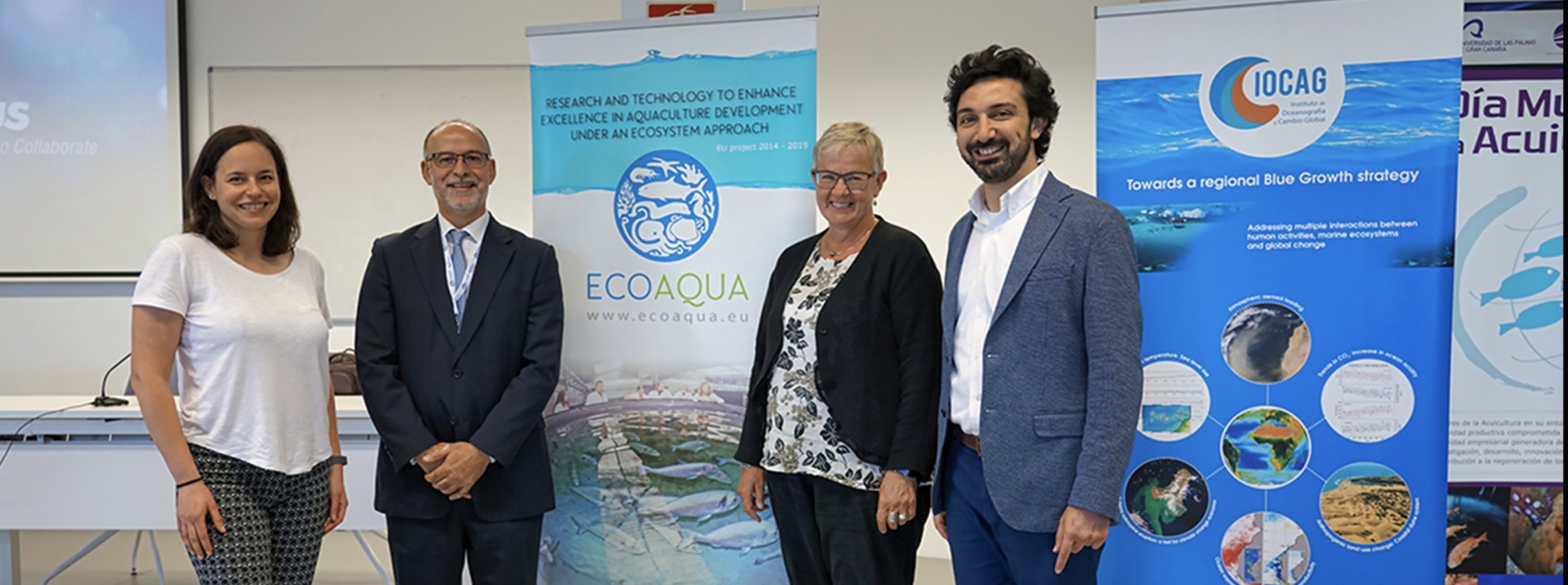Serhat Turkmen, researcher at the ECOAQUA University Institute, has demonstrated with his studies that future generations of fish will be affected by the feeding of their parents, as happens in humans
A PhD student from the University of Las Palmas de Gran Canaria (ULPGC) and researcher at the University Institute of Aquaculture and Sustainable Marine Ecosystems (ECOAQUA), Serhat Turkmen, has demonstrated for the first time that future generations of fish will be affected depending on the diet of their parents, as is the case with the human species.
Turkmen, which used the gilthead bream as a model for its studies, observing and examining its life cycle, growth, health, reproductive capacity and nutritional qualities, ensures that through nutritional programming (adequacy of essential nutrients during embryonic and larval development) can improve up to 23% breeding of these species, with long-term effects on their development.
These results form part of the doctoral thesis presented by this researcher of Turkish origin to obtain his doctorate degree at the ULPGC last June, obtaining an international mention and outstanding cum laude by an international tribunal formed by Grethe Roselund from Skretting ARC (Norway); Mónica Betancor from the University of Stirling (UK); and Juan Manuel Afonso López from the University of Las Palmas de Gran Canaria (Spain).
"Enriching the diet during the reproduction of sea bream, a species that records a high production in the Canary Islands and is only surpassed by sea bass, can have positive effects in the early stages of the offspring and also after sexual maturation. It can even accelerate growth if feed with very low levels of fishmeal and fish oil are used exclusively", says this researcher, who holds a degree in Marine Sciences from the University of Çukurova, in the Turkish city of Adana, and two masters degrees, one from the Institute of Applied Sciences of the University of Çukurova itself, and the other from the ULPGC's Marine Cultivation programme.
The diet of aquaculture fish is based on compound feeds that comply with the demanding European official health and environmental regulations. The main raw material for these feeds is of marine origin, but with a view to the sustainability of the activity and reducing the pressure on fish resources, more and more raw materials are used from land-based agriculture.
The results of this thesis, which has been directed by the ULPGC professor and director of ECOAQUA, Marisol Izquierdo, and the specialist in Animal Production and professor at the ULPGC, María Jesús Zamorano, will help improve sustainability in the aquaculture industry and will also serve for studies associated with humans. It should be noted that this thesis consists of five scientific articles, which have been published in prestigious journals such as the British Journal of Nutrition.
In recent years, several researches strictly related to humans have also concluded that the nutrition of mothers during the 9 months of pregnancy, and even before, can have consequences on the health and longevity of future babies. The effects of poor nutrition can affect children throughout their lives, having less resistance to certain diseases or increasing the likelihood of suffering some. In this sense we can talk about different types of metabolic diseases, cancer, heart disease, allergies, asthma, autoimmune diseases, diabetes, obesity, mental diseases and degenerative diseases such as arthritis, osteoporosis, dementia or Alzheimer's that could be related to nutritional programming.
In the case of gilthead bream, this study shows that the modification of the fatty acid profiles of parental diets makes it possible to improve the growth performance of fed juveniles and their metabolism. In addition to nutritional programming, the selection of selected breeders with high expression of a key gene in the use of dietary fats further improves spawning, larval and juvenile yields, as well as the ability of offspring to use diets with low fishmeal and low fish oil content.


